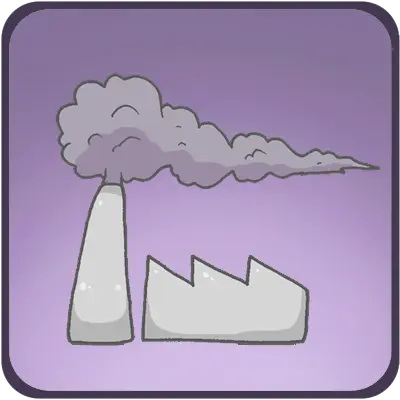The nineteenth century is what we call the time of citizens and steam engines. In this era, a democracy was formed and the first emancipation movements arose. But science also continued to grow. Many discoveries have been made that have had major consequences throughout history.
Some important inventors of the 19th century include Thomas Edison and Alexander Graham Bell. Both were from America. Edison has developed the light bulb and laid the foundation for the techniques for making and watching film. We know Bell because of his discovery to convert sound into electric vibration. This electric vibration could quickly travel a long distance, where it could be converted back into sound. This way you could talk to each other without being close to each other. So Alexander Bell invented the phone.
Also, resources were found to power machines. Previously, this often happened by hand or by horse, water or gravity. Batteries were invented and thanks to the invention of the steam engine they were able to generate power. But the steam engines were also mobile. They were relatively small and could be put on a vehicle. Thus the first steam locomotives, steamboats, steam tractors and even cars powered by a steam boiler were created. The windmills were also replaced by steam ground. In the Netherlands, the Haarlemmermeer was ground dry by a steam mill.
The world was moving fast. Everyone could travel, produce and communicate faster. We call this the Industrial Revolution. Thanks to the increased production, there was also more food and so the population grew fast. Thanks to the growing population, many countries wanted to expand their territory. Almost all European countries had colonies by sea. The Netherlands had added several islands in the Caribbean sea, small areas in West Africa, Suriname and Indonesia to its empire. These countries were ruled by the King of the Netherlands. From 1815 the Netherlands had become a monarchy. This means that it was ruled by a king. The first Dutch king was William I of Orange-Nassau. He was succeeded first by William II and later by William III of Orange-Nassau.
But not everyone in the kingdom of the Netherlands was equal. While in the Netherlands more and more people were allowed to call themselves 'citizens', the Indonesian and Surinamese people were still nationals or even slaves. They had to work hard for their Dutch rulers. Often they were also oppressed and their possessions were taken away. Eduard Douwes Dekker was the first man to write a book about this. He wrote the book under a different name. He called himself Multatuli. A lot of people know the name of this book. Nowadays there is a fair trade brand named after it. The book was called Max Havelaar and was about oppression in Indonesia. In this era, many people in the Netherlands did not know that the people in the colonies were so oppressed. Max Havelaar made this scandalous oppression known.
Multatuli himself was once a Dutch official in Indonesia, so he knew very well what he was writing about. After the book was released, however, he no longer wanted to work for the Dutch state. He became a writer. But even though he was famous now, he didn't make that much money.
There were a lot of writers, composers and painters in the 19th century. But most of them had a hard time making ends meet. Vincent van Gogh was no exception. Today he is one of the most famous painters in Dutch history. But in the 19th century, he couldn't afford his own home. He lived with his brother. His paintings were very modern at the time and there were very few people who could appreciate it.
- The political-social movements nationalism, liberalism, socialism, confessionalism and feminismDo you follow politics? It's very complicated sometimes. There are a lot of currents with different opinions. These arose in the period of the 19th century.
- The emergence of a parliamentary system and the increase in popular influenceIn this era, the voice of the people grew ever larger. This means that we can now demand that new elections be held.
- The industrial revolution and the rise of emancipation movementsIn the era of the Industrial Revolution, the first factories were created. There were a lot of people working at low wages and in bad conditions.
- Modern imperialismHistory gives you many answers to questions about today's world. Does it even make sense that English is the most important language in the world?


